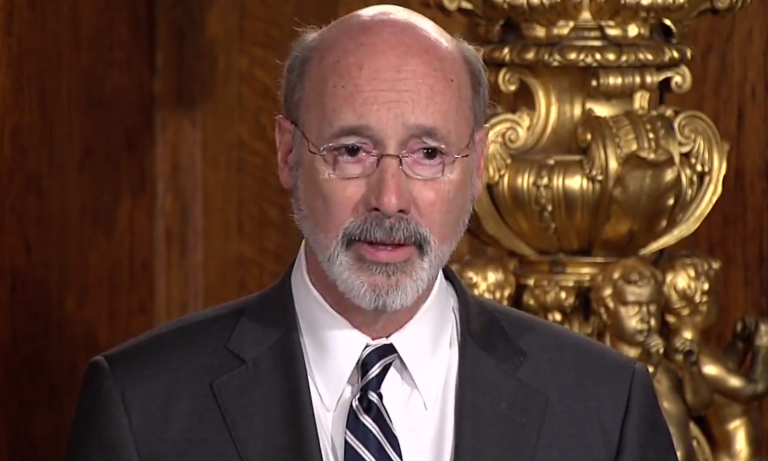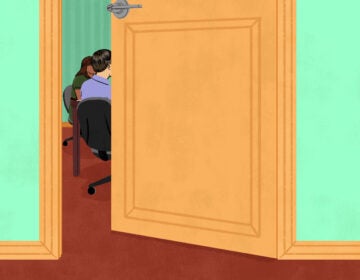Gov. Tom Wolf declares ‘state of emergency’ in Pa. opioid epidemic
There will be a command center at the state's emergency management headquarters in Harrisburg and provide wider access to the prescription drug monitoring program.
Listen 5:38
Gov. Tom Wolf announcing his declaration of a 'State of Emergency' to deal with the opioid epidemic
Gov. Tom Wolf has declared Pennsylvania’s opioid addiction epidemic a “disaster emergency.”
It’s an unusual move — one that is usually only applied to natural disasters.
It will allow the state to override a lot of existing regulations to address the crisis.
From 2016 to 2017, opioid deaths in Pennsylvania surged more than 44 percent, according to the Centers for Disease Control and Prevention.
It was the biggest jump in any state except Florida, and it leaves the commonwealth with the fourth-highest rate of overdose death in the country.
More than 5,200 people died of overdoses last year in Pennsylvania, according to provisional estimates.
Wolf said it was time for more extreme action. “I don’t take this action lightly. We know that this crisis has taken far too many lives.”
The declaration will create a new Opioid Coordination Group within the state Emergency Management Agency, and waive 12 regulations the administration said can slow down responses to people in need.
Changes include letting high-performing drug-treatment facilities bypass some licensing requirements, and letting emergency workers leave extra naloxone with overdose patients in case they need to be revived again.
Acting Drug and Alcohol Secretary Jennifer Smith said she’ll consider making some of the changes permanent if they appear to be making a difference.
While the move was touted in the state House, some on the front lines of the crisis wonder if the declaration goes far enough to make a difference.
Denise Shanahan struggled to help her daughter Bryanna for more than 10 years before losing her to a drug overdose. Lax rules at rehab facilities made it too easy for people to get drugs while in treatment, she said.
President Donald Trump’s federal declaration didn’t have a noticeable impact, Shanahan said, and she worries that the state’s effort will also fall short.
Trump “didn’t go as far as he should have. It didn’t open up the resources that it could have opened up,” she said. “So when they say this, I’m a little hesitant in getting excited.”
Shanahan said she wants to learn more about the declaration to see if it works to keep prescription drugs away from children — and keep children and teens from making that first bad decision that leads to addiction. “I think there’s also the thing to try to catch this before the kids delve into this … Why is this happening? We need to figure out the underlying reason.”
In Hampden Township, Cumberland County, Police Chief Steven Junkin said he welcomes Wolf’s declaration. He said, however, that police really need to be able to intervene when someone poses a high risk to themselves in the same way that they can intervene when someone is suicidal.
“Even though they likely will admit they’re going to die, they’re not even eating, all they care about is the drug, there’s nothing from an administrative or legal standpoint that allows a police officer to get that person into treatment for something,” Junkin said.
Wolf’s move to allow officers to issue naloxone, which can save someone having an overdose, has already saved lives, he said, adding that law enforcement wants to do more to help.
WHYY is your source for fact-based, in-depth journalism and information. As a nonprofit organization, we rely on financial support from readers like you. Please give today.





